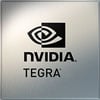
UNISOC T770 Benchmark, Test and specs
Last updated:
The UNISOC T770 is a 8 core processor. It can process 8 threads concurrently and is based on the 0. gen of the UNISOC 5G series. The processor was released in Q1/2020. The UNISOC T770 scores 619 points with one CPU core in the Geekbench 5 benchmark. When using all CPU cores, the result is 2,207 points.

| Name: | UNISOC T770 |
|---|---|
| Family: | UNISOC 5G (3) |
| CPU group: | UNISOC 5G 6nm (2) |
| Architecture: | |
| Segment: | Mobile |
| Generation: | 0 |
| Predecessor: | -- |
| Successor: | -- |
CPU Cores and Base Frequency
The 8 CPU cores of the UNISOC T770 clock with 2.50 GHz. The number of CPU cores and the clock frequency of the processor are largely responsible for the overall performance.
| CPU Cores / Threads: | 8 / 8 |
|---|---|
| Core architecture: | hybrid (Prime / big.LITTLE) |
| A-Core: | 1x Cortex-A76 |
| B-Core: | 3x Cortex-A76 |
| C-Core: | 4x Cortex-A55 |
| Hyperthreading / SMT: | No |
|---|---|
| Overclocking: | No |
| A-Core Frequency: | 2.50 GHz |
| B-Core Frequency: | 2.20 GHz |
| C-Core Frequency: | 2.00 GHz |
Internal Graphics
With the ARM Mali-G57 MP4, the UNISOC T770 has an build in graphic solution. It has 4 SM processors, which have a total of 64 texture shaders. The iGPU not only enables games, but also significantly accelerates video playback.
| GPU name: | ARM Mali-G57 MP4 |
|---|---|
| GPU frequency: | 0.78 GHz |
| GPU (Turbo): | No turbo |
| Compute units: | 4 |
| Shader: | 64 |
| Hardware Raytracing: | No |
| Release date: | Q2/2020 |
| Max. displays: | 2 |
|---|---|
| Generation: | Vallhall 1 |
| Direct X: | 12 |
| Technology: | 7 nm |
| Max. GPU Memory: | 4 GB |
| Frame Generation: | No |
Hardware codec support
Processors that have an integrated graphics can play videos faster and more efficiently. This can have a positive effect on the battery life of notebooks, for example.
| h265 / HEVC (8 bit): | Decode / Encode |
|---|---|
| h265 / HEVC (10 bit): | Decode / Encode |
| h264: | Decode / Encode |
| VP8: | Decode / Encode |
| VP9: | Decode / Encode |
| AV1: | Decode |
|---|---|
| AVC: | Decode / Encode |
| VC-1: | Decode / Encode |
| JPEG: | Decode / Encode |
Memory & PCIeThe UNISOC T770 supports up to memory in up to 2 (Dual Channel) memory channels. This results in a maximum memory bandwidth of --. |
|
| Memory type: | Memory bandwidth: |
|---|---|
| LPDDR4X-2133 | -- -- |
| Max. Memory: | |
| Memory channels: | 2 (Dual Channel) |
| ECC: | No |
| PCIe: | |
| PCIe Bandwidth: | -- |
Thermal ManagementWith the TDP, the processor manufacturer specifies the cooling solution required for the processor. The UNISOC T770 has a TDP of . |
|
|---|---|
| TDP (PL1 / PBP): | |
| TDP (PL2): | -- |
| TDP up: | -- |
| TDP down: | -- |
| Tjunction max.: | -- |
Technical details
The UNISOC T770 has a 0.00 MB large cache. The processor is manufactured in 6 nm. Modern production increases the efficiency of the processor.
| Technology: | 6 nm |
|---|---|
| Chip design: | |
| Socket: | -- |
| L2-Cache: | -- |
| L3-Cache: | -- |
| AES-NI: | No |
| Operating systems: | Android |
| Virtualization: | None |
|---|---|
| Instruction set (ISA): | Armv8-A (64 bit) |
| ISA extensions: | -- |
| Release date: | Q1/2020 |
| Release price: | -- |
| Part Number: | -- |
| Documents: | Technical data sheet |
Rate this processor
Benchmark results

The benchmark results for the UNISOC T770 have been carefully checked by us. We only publish benchmark results that have been created by us or that have been submitted by a visitor and then checked by a team member. All results are based on and fullfill our benchmark guidelines.
Geekbench 5, 64bit (Single-Core)
Geekbench 5 is a cross plattform benchmark that heavily uses the systems memory. A fast memory will push the result a lot. The single-core test only uses one CPU core, the amount of cores or hyperthreading ability doesn't count.

|
Intel Core i7-2670QM
4C 8T @ 3.10 GHz |
||

|
Intel Xeon E5-2650 v2
8C 16T @ 3.40 GHz |
||

|
Intel Core i3-5157U
2C 4T @ 2.50 GHz |
||
|
|
UNISOC T770
8C 8T @ 2.50 GHz |
||

|
Qualcomm Snapdragon 765G
8C 8T @ 2.40 GHz |
||

|
Intel Xeon E5-2660 v2
10C 20T @ 3.00 GHz |
||

|
Intel Core i3-6100U
2C 4T @ 2.30 GHz |
||
Geekbench 5, 64bit (Multi-Core)
Geekbench 5 is a cross plattform benchmark that heavily uses the systems memory. A fast memory will push the result a lot. The multi-core test involves all CPU cores and taks a big advantage of hyperthreading.

|
Intel Core i3-6300
2C 4T @ 3.80 GHz |
||

|
AMD Phenom II X6 1100T
6C 6T @ 3.70 GHz |
||

|
MediaTek Dimensity 1080
8C 8T @ 2.60 GHz |
||
|
|
UNISOC T770
8C 8T @ 2.50 GHz |
||

|
Intel Core i5-6442EQ
4C 4T @ 2.40 GHz |
||

|
MediaTek Dimensity 7050
8C 8T @ 2.60 GHz |
||

|
MediaTek Dimensity 7030
8C 8T @ 2.50 GHz |
||
iGPU - FP32 Performance (Single-precision GFLOPS)
The theoretical computing performance of the internal graphics unit of the processor with simple accuracy (32 bit) in GFLOPS. GFLOPS indicates how many billion floating point operations the iGPU can perform per second.

|
Intel Core i5-4300M
Intel HD Graphics 4600 @ 1.25 GHz |
||

|
Intel Core i5-4330M
Intel HD Graphics 4600 @ 1.25 GHz |
||

|
Intel Core i7-4770K
Intel HD Graphics 4600 @ 1.25 GHz |
||
|
|
UNISOC T770
ARM Mali-G57 MP4 @ 0.78 GHz |
||

|
Intel Core i7-13650HX
Intel UHD Graphics 13th Gen (16 EU) @ 1.55 GHz |
||

|
Nintendo Switch
NVIDIA Tegra X1 (Maxwell) @ 0.77 GHz |
||

|
Qualcomm Snapdragon 810
Qualcomm Adreno 430 @ 0.60 GHz |
||
AnTuTu 9 Benchmark
The AnTuTu 9 benchmark is very well suited to measuring the performance of a smartphone. AnTuTu 9 is quite heavy on 3D graphics and can now also use the "Metal" graphics interface. In AnTuTu, memory and UX (user experience) are also tested by simulating browser and app usage. AnTuTu version 9 can compare any ARM CPU running on Android or iOS. Devices may not be directly comparable when benchmarked on different operating systems.
In the AnTuTu 9 benchmark, the single-core performance of a processor is only slightly weighted. The rating is made up of the multi-core performance of the processor, the speed of the working memory, and the performance of the internal graphics.
In the AnTuTu 9 benchmark, the single-core performance of a processor is only slightly weighted. The rating is made up of the multi-core performance of the processor, the speed of the working memory, and the performance of the internal graphics.

|
MediaTek Dimensity 920
8C 8T @ 2.50 GHz |
||

|
MediaTek Dimensity 930
8C 8T @ 2.20 GHz |
||

|
MediaTek Dimensity 900
8C 8T @ 2.40 GHz |
||
|
|
UNISOC T770
8C 8T @ 2.50 GHz |
||

|
Samsung Exynos 1280
8C 8T @ 2.40 GHz |
||

|
Qualcomm Snapdragon 750G
8C 8T @ 2.20 GHz |
||

|
MediaTek Helio G99
8C 8T @ 2.20 GHz |
||
Benchmarks

Geekbench 5 (SC)
2,488 entries
2,488 entries

Geekbench 5 (MC)
2,461 entries
2,461 entries

FP32 SP (iGPU)
2,042 entries
2,042 entries

AnTuTu 9 Benchmark
90 entries
90 entries
Popular comparisons
back to index








